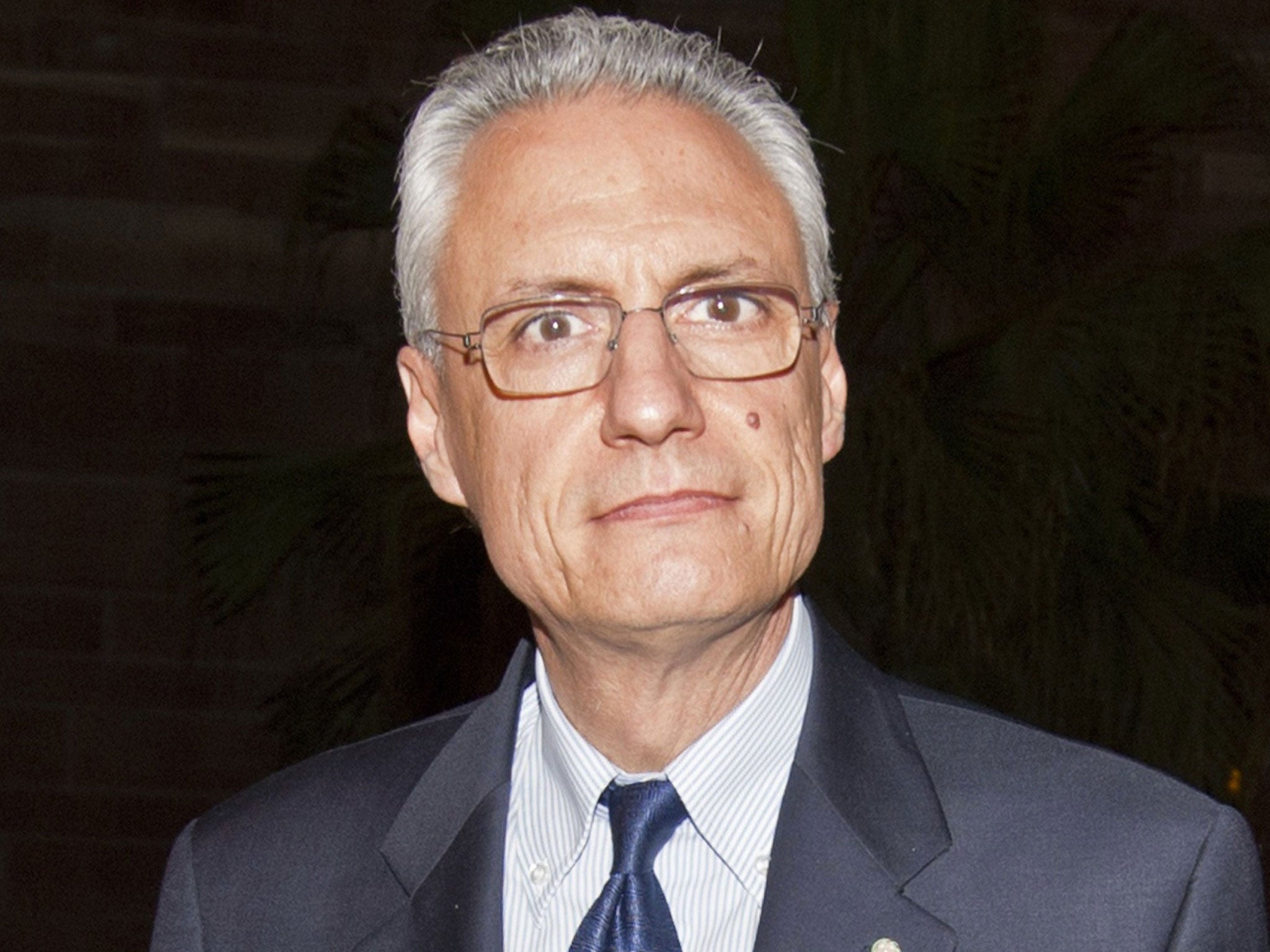India extends travel ban on Italian ambassador Daniele Mancini over missing marines who shot fishermen

The Indian Supreme Court today extended a travel ban on the Italian ambassador Daniele Mancini “until further notice,” escalating the diplomatic stand-off between the two countries.
The Court had previously placed a ban on Mr Mancini’s travel on Thursday. The Indian government sent a notification to all airports and seaports, telling them to bar Mr Mancini from leaving the country.
Mr Mancini had appeared before the court on Friday to claim diplomatic immunity. Under the Vienna Convention on Diplomatic Relations, ambassadors are required to be given freedom of movement.
The Supreme Court rejected this argument, saying that it had “lost trust” in Mr Mancini. The Court further claimed that the ambassador had waived his diplomatic immunity by acting as guarantor for the return of the two Italian marines charged with shooting two Indian fishermen in February last year.
The two marines were allowed to return home in February for four weeks to vote in the country’s general elections. They had previously been allowed to return to Italy for Christmas, after which they returned. The marines were due to return on March 22, but Mr Mancini informed the Court that they would not be returning.
"A person who comes to court and gives an undertaking has no immunity," Chief Justice Altamas Kabir is reported to have said by local media.
Harish Salve, a former solictor-general of India, said that the Court is on solid legal ground despite international conventions on diplomatic immunity. “In my perception, where a diplomat is a petitioner and seeks relief, then he cannot seek sovereign immunity,” he said. Mr Salve likened it to when an ambassador sues someone in his host country. “If he loses, he can not say he will not pay the money he owes by citing sovereign immunity.”
Mr Salve was legal counsel for the two marines, Massimiliano Latorre and Salvatore Girone, until last Monday. He withdrew after hearing on the evening news that Italy had notified the Indian government of its decision not to return the two marines. “It was an issue of conscience, but it is also not how you treat your legal counsel.”
The marines were stationed on the Italian oil tanker Enrica Lexie as a defence against pirates. The marines allegedly opened fire on a fishing boat they mistook for pirates off the coast of the southern state of Kerala, killing two. There have 12 pirate attacks off the western coast of India, where Kerala lies, since 2010, according to the International Maritime Bureau. The Bureau lists the shooting incident involving the two marines as an attempted attack.
They were detained by the Indian coast guard and imprisoned in Kerala.
The shooting sparked a diplomatic row, with both governments facing heavy political pressure at home.
The Italian government wants the marines to be tried in Italy, claiming that the shooting occurred in international waters. Under international law, killings on the high seas are tried in the country under whose flag the ship sails. The Indian government claims that the shooting occurred in its “exclusive economic zone” a nebulous zone between a country’s coastline and international waters.
The next court hearing is set for April 2.
Join our commenting forum
Join thought-provoking conversations, follow other Independent readers and see their replies
Comments